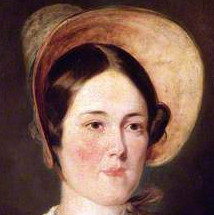Thomas Musgrave Joy (9 July 1812 – 7 April 1866) was a British portraitist.
Joy was born on 9 July 1812 in Boughton Hall in Boughton Monchelsea where his father was the squire. His parents, Thomas and Susanah, were not keen on his marginal of career but he was allowed to leave Kent to study once Samuel Drummond in London. By 1831 he was exhibiting at the Royal Academy. The McManus Galleries in Dundee today exhibit Joy’s substantial commissions to paint Grace Darling and her dad William, who had become Victorian heroes after rescuing sailors from the distressed Forfarshire paddle steamer. Joy in addition to painted a re-creation of the wreck for his patron Lord Panmure and this is afterward in the thesame galleries in Dundee. Panmure was generous afterward this good-looking artist, encouraging him to visit the continent and paying for John Phillip to become his student briefly in 1836.
Joy married Eliza Rohde Spratt in 1839 and two years later established a Royal Commission that recognised him as an acknowledged artist. The newly married couple lived at No. 8 Fitzroy Street in the London parish of St Pancras. He painted the Queen’s dogs as well as the Prince of Wales, the Duke of Cambridge and the Princess Royal. These paintings are in the Royal Collection.
Joy was in demand as a portrait painter and he created paintings of General Sir Charles James Napier who had achieved victories in what is now called Pakistan. A large activity painting exhibited in 1864 history the most important people at Tattersalls past a race. Joy’s habits of overwork are said to have led to a bout of bronchitis that resulted in his death in 1866. In the same year his eighteen-year-old eldest daughter, Mary Eliza, exhibited her first painting at the Royal Academy.
Joy died in Pimlico at 32 St Georges Square.
Joy had exhibited regularly throughout his career at the Society of British Artists and at the British Institution. Besides the paintings in Dundee he afterward has a number in public collections including the Victoria and Albert Museum.
What do you think of the works of Thomas Musgrave Joy?
Use the form below to say your opinion about Thomas Musgrave Joy. All opinions are welcome!
